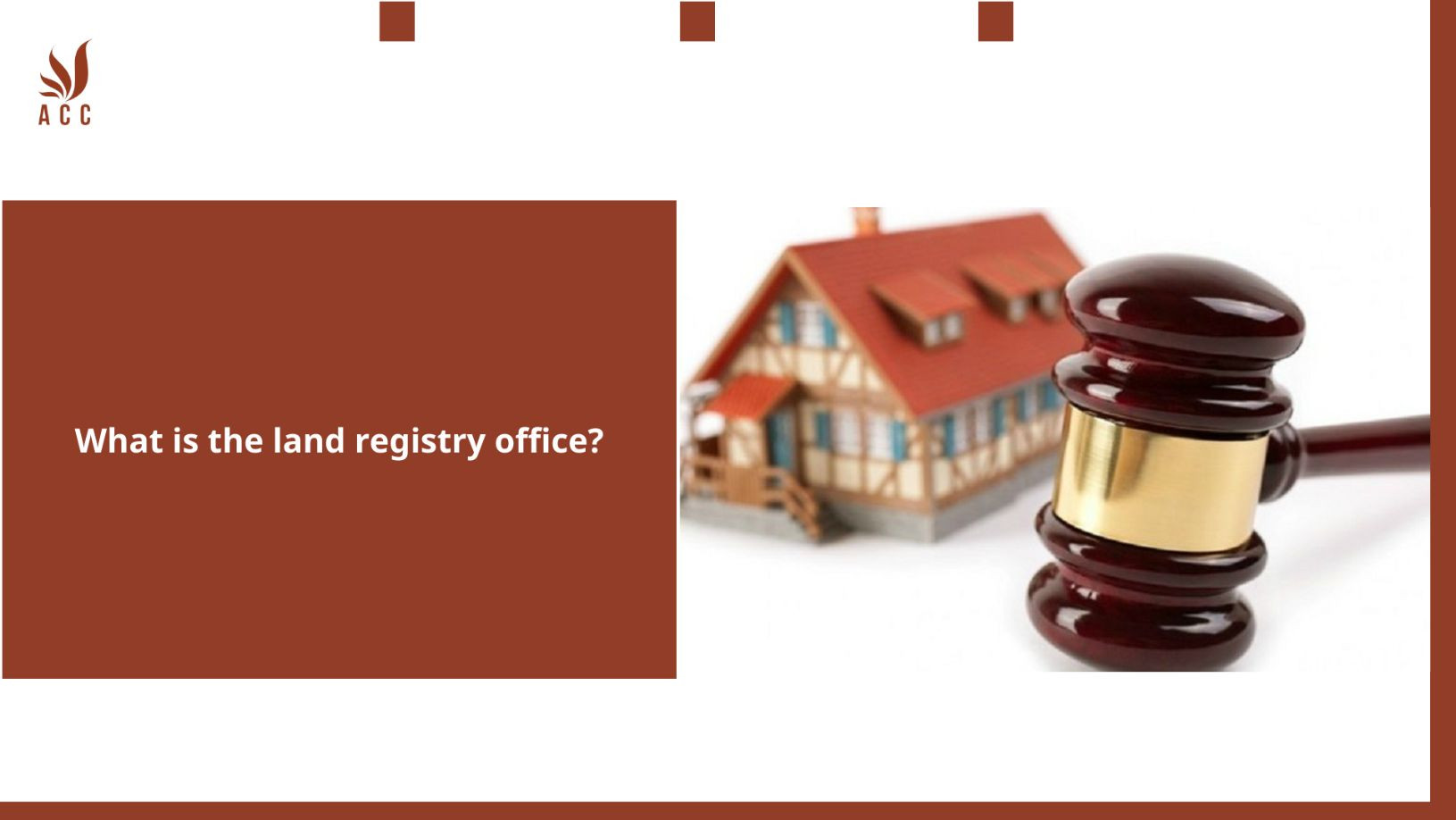A land registry office, also known as a land registry or land records office, is a government agency or department responsible for maintaining and managing official records and documents related to land and property ownership. These offices play a crucial role in ensuring the accuracy and transparency of property transactions and land ownership in a given jurisdiction.
The primary functions of a land registry office typically include:

1. Recording Property Transactions:
They record the transfer of ownership, mortgages, easements, and other legal interests in land and real estate. This helps establish a public record of who owns a particular property and any encumbrances on it.
2. Land Title Registration:
Land registry offices often oversee the registration of land titles and deeds. This helps establish legal ownership and prevents disputes over property rights.
3. Maintaining Land Records:
They store historical records of property transactions, which can be useful for legal and historical research, as well as for property disputes.
4. Public Access:
Land registry offices provide public access to land records, allowing individuals, businesses, and professionals (like real estate agents and lawyers) to search and obtain information about properties.
5. Property Valuation:
Some land registry offices also play a role in property valuation and taxation.
6. When using ACC Law Firm's land-related services, entrepreneurs will receive
When using ACC Law Firm's land-related services, entrepreneurs will receive expert advice and assistance in navigating various legal aspects of land ownership and transactions. This includes guidance in property acquisitions, leases, zoning regulations, land use planning, and any other land-related legal matters. ACC Law Firm's team of experienced attorneys will provide personalized support to entrepreneurs, ensuring compliance with applicable laws and regulations, protecting property rights, and optimizing the value of their land investments.
7. Q&A
Question 1: What is the Land Registry Office, and what is its primary function?
Answer 1: The Land Registry Office, often a government agency, is responsible for maintaining records and documents related to property and land ownership within a specific jurisdiction. Its primary function is to establish, document, and verify property ownership, boundaries, and legal rights, ensuring the accuracy and security of land records.
Question 2: What types of documents and transactions are typically handled by the Land Registry Office?
Answer 2: The Land Registry Office handles various documents and transactions, including:
- Property purchases and sales
- Land title transfers
- Mortgage registrations
- Easements and property rights
- Boundary changes or disputes
- Property encumbrances and liens
These transactions are recorded and documented to maintain a transparent and legally sound record of property ownership.
Question 3: How does the Land Registry Office benefit property owners and the public?
Answer 3: The Land Registry Office provides several benefits, including:
- Legal certainty: Property owners have a secure record of ownership, reducing the risk of property disputes.
- Transparency: The public can access information about property ownership and rights, promoting trust in property transactions.
- Mortgage and lending security: Lenders can verify property titles, allowing homeowners to secure loans with their property as collateral.
- Prevention of fraud: The office helps prevent fraudulent property transactions by verifying ownership.
Question 4: What measures are in place to ensure the security and integrity of land records at the Land Registry Office?
Answer 4: The Land Registry Office employs various security measures to protect land records, such as:
- Controlled physical access to document storage facilities.
- Use of digital records management systems with encryption and authentication.
- Regular audits and quality control checks to maintain record accuracy.
- Disaster recovery and backup systems to prevent data loss in emergencies.
- Compliance with data protection and privacy regulations to protect property owner information.
Nội dung bài viết:






Bình luận